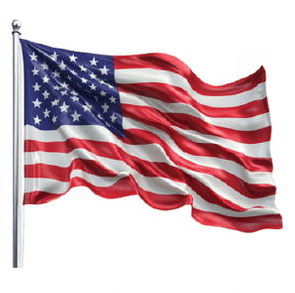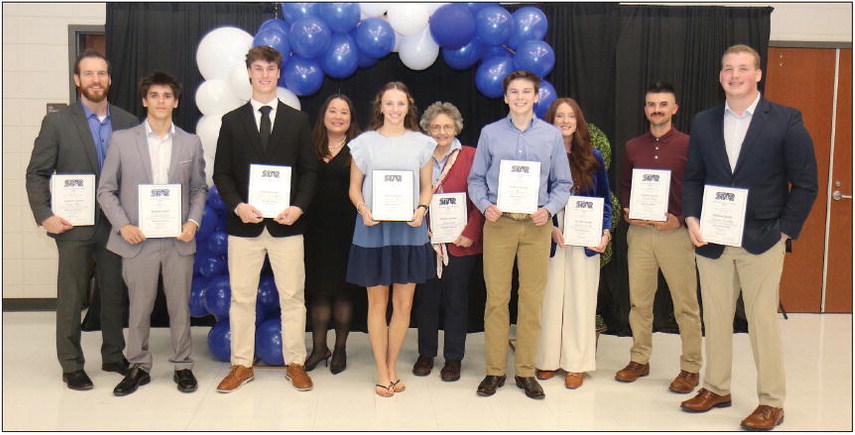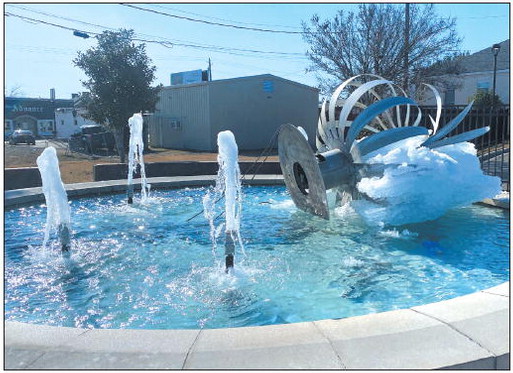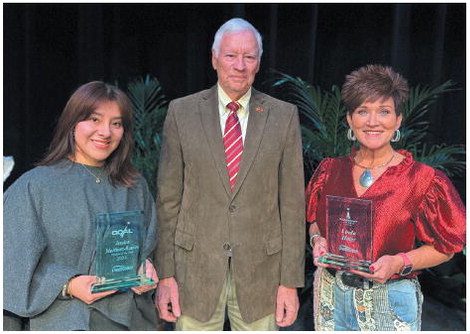United We - ‘ Should’


United We
In a world rife with conflict, happiness feels increasingly out of reach. Wars rage abroad while divisions deepen at home, eroding the foundations of trust, community, and morality that once held us together. Inflation squeezes working families, institutions falter under corruption, and our nation’s intellectual and moral centers drift further apart.
These global conflicts serve as a mirror, reflecting the turmoil within
continued from page
our own society. A nation divided, distracted, and vulnerable. Dictators like Vladimir Putin and Xi Jinping crave power. Russia battles to reestablish the USSR, while China seeks to pull Taiwan into its communist chains. There are wars raging all over this world as we sit and try to reflect on what has happened just in the past week in our own country.
The multi-front war of Israel with Iran’s Hamas, Houthi, and Hezbollah has devastated parts of the Middle East as it is still trying to move past ISIS and the Taliban’s reach. Then it spread to Asia and the civil wars in Myanmar and the conflict between Pakistan and India. The rebellion in Nepal has seen government buildings burn as the citizens battle corruption. In Africa, civil wars in Sudan and the Congo, along with unrest across the Sahel, have triggered one of the largest humanitarian crises in the world—yet receives little attention.
While these global conflicts rage, we must also confront the divisions tearing at our society here at home. We have sat in the United States, knowing and watching, as things have become more polarized over the past several decades, but we have kept moving forward, continuing to hope for the best, thinking that bright days are just on the horizon. But they have not come.
What was once violence confined largely to major cities has spread more broadly, accompanied by a sharp decline in civil discourse. As citizens we have continued to move farther from the middle, being pushed politically and morally to the edges on both sides. We have lost our center, and with that our morality. We are no longer neighbors, we are adversaries. There is no longer meaningful discourse; it has been relegated to yelling and name calling like we are back on an elementary school playground.
I have watched as people that used to consider themselves moderates and intellects are finding themselves galvanized deeply on one side or the other. We have lost the middle ground that made this country what it was. A place where people could openly share ideas and have meaningful conversations about this country and its politics. Now today, if you aren’t one of “them,” then you are ostracized, hated, worthless, or worse yet, a target.
We, as a people, and a country, must come back to the middle, find our center, because it is only there that we will again find morality. But what will it take to do that? Over just the past couple of weeks we have seen Iryna Zarutska, a refugee from war torn Ukraine, brazenly murdered on a train in Charlotte by a man who had been released from jail 14 times, another school shooting that injured two kids in Colorado, and now the political assassination of Charlie Kirk. We have flash mobs that are not only looting stores in droves to the reported tune of $112 billion, they are physically attacking the employees in the process. Drugs are out of control across the nation and predicted to have taken upwards of 80,000 lives a month in the first quarter of this year.
There is outcry but no action, words but no leadership. The “leaders” that we do have are doing nothing but lining their pockets and pushing us further and further apart as a nation and as a people. People are setting up GoFundMe accounts for the Charlotte murderer and people are cheering the death of Charlie Kirk. Where is the morality in any of that?
Since when did we start celebrating the deaths of others, even if we did disagree with them? Since when did violence become the go-to, to solve our problems? Since when did we lose the ability to disagree with someone and still be friends and neighbors? We have lost who we are, what made us the greatest nation on the planet.
To rebuild our communities, we must practice civility and morality in our daily lives. We have to see each other as brothers and sisters again. We need to go back to teaching Civics in schools with a focus on the moral and civic virtues of democracy, teach critical thinking, constructive dialogue, and give the youth a deeper understanding of diverse perspectives so that when they are confronted with them, they have the ability to have a real conversation and not an argument.
Ultimately, the process of finding greater unity and civility is not about eliminating disagreement, but about creating a culture where people with different values and beliefs can engage constructively, respect one another’s dignity, and work together on shared challenges and goals.
The media, as a whole, needs to be truly objective as it once was. When people tuned into Walter Cronkite, Edward R. Murrow, Peter Jennings, Dan Rather, and Tom Brokaw. All who drove news in their own way, but in a way that was trusted, that was credible, and that the nation could look to for the truth. Today it has devolved into clickbait stories, political rhetoric, and sometimes complete lies. There is no credibility in the news today, where more people are turning to social media for their news than newspapers and television. That has driven the media to fall into the trap of creating stories for views and clicks rather than for the truth. And with that, it has come at the cost of division throughout the country.
We need great men and women to step up, not for the fame, but for the true love of their fellow countrymen. What we have today are people that are looking for power, money, and recognition instead of sacrifice, service, and the courage to put the needs of others above their own. Our leaders have failed us, the government has failed us, and the institutions we once trusted have crumbled under their own corruption. And yet together we still have the power to chart a better future.
But how do we, as a society, start to walk in that direction? How do we begin to close the divide? How can we begin to see eye to eye once again?
Let’s remember that unity does not mean uniformity. But perhaps it starts with listening more than we speak, seeking to understand before we condemn, and finding common ground in the values we all should share—family, community, and the hope for a better tomorrow. Maybe it begins with humility, with the courage to lay aside pride and bitterness, and with the willingness to see our neighbor not as an enemy, but as a partner in building something greater than ourselves. But to start, either way, we must stop pointing fingers and start taking responsibility, not just for our own lives, but for the health of our communities and the future of our nation.





